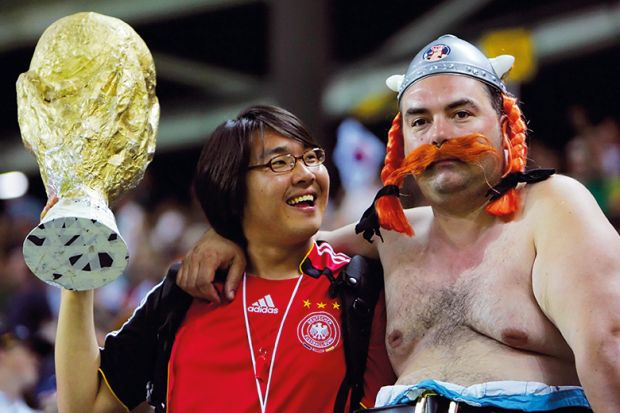Like his peers leading South Korea’s regional institutions, Chang-Seop Koh is keenly aware of the acute stress the sector is under because of rapid population decline.
But the president of Chungbuk National University is also pushing back against a common knee-jerk response to this existential threat – a drop in quality that he believes could undermine Korean degrees in the long term, putting off desperately needed international students.
“In this country, customarily we are very generous after they enter university,” said Professor Koh of the inclination to let students graduate, despite poor performance.
Recently, he has witnessed a concerning pattern of institutions handing diplomas to overseas learners who may not merit it – students who can barely follow classes, often because of inadequate Korean language skills, and who, he believes, fail to demonstrate the knowledge behind the piece of paper they receive on graduation day. The practice hits uncomfortably close to home.
“Sometimes I tell my professors, this is selling the degree. That is very far from what this university should do,” he said. “Right now, universities in this country have [a] financial problem [and are admitting] not qualified students. That’s a very, very big problem.”
In the long run, a dip in quality – or a perception of one, which could prove equally damaging to reputation – could undermine the country’s education offering, deterring future international students from pursuing studies in Korea, Professor Koh thinks.
It’s clear that he expects his institution to set a higher bar. But this is easier said than done.
One of 10 flagship national institutions, Chungbuk is a decent university, but not among Korea’s most elite. It is also located in a provincial city, more than an hour on the express train – but in students’ minds, a world away – from the highly favoured Seoul.
Like its peers, Chungbuk finds itself between a rock and a hard place; with domestic tuition fees frozen for more than a decade, these institutions clearly need the revenue from international students. To his credit, Professor Koh has been blunter than many of his contemporaries about the problem.
“The number of students is proportional to our income,” he said. “In this university, we need that too.”
Professor Koh wants the university to build on international student flows, attracting more learners from Vietnam, Mongolia and Uzbekistan – after China, they are among the most common source countries of students at Chungbuk and its peers.
But instead of trying to boost Chungbuk’s number of undergraduate students, who are required to take their lessons in Korean, Professor Koh is concentrating his energy on attracting “more excellent foreign students for graduate school”, who have the option of taking courses in English. He hopes this can address the issue, but without compromising on quality.
Still, he wishes they would at least attain a baseline level of Korean ability, allowing them to do simple things such as order a meal in a restaurant or buy a train ticket to Seoul, even if the language isn’t mandatory to graduate.
“I supervised more than 15 doctoral students, now they’re all professors in China, Finland, etc,” he said. “If I asked them to learn Korean, they [would] give up this university. It’s a problem.”
Language aside, Chungbuk is bringing in a whole host of changes in its bid to attract more students. While the university hasn’t yet seen a drop in enrolment as a result of population decline, Professor Koh recognises it will have to shake up its approach to ensure a stable income.
For instance, the university provides a full scholarship for postgraduates, who also receive a living stipend out of their professors’ research budget. Students who qualify can opt for a 3+2 programme, wherein after three years in their home university they come to Chungbuk. After six months, they are automatically enrolled in a master’s programme; those who continue onto a PhD receive full financial support. Professor Koh believes the initiative will bring more than 500 students to his institution.
But in other ways too, Chungbuk is betting big on internationalisation. Having recently won its bid to become one of Korea’s “Glocal” universities – a combination of “global” and “local” – Chungbuk is among an initial cohort of 10 institutions to receive a 100 billion won (£60 million) grant over five years.
For Chungbuk, its proposal involves large-scale and ambitious changes, not least of all a merger with the Korea National University of Transportation, a move that received some pushback from students earlier this year.
Slated to take effect in spring 2026, the change will mean that Chungbuk’s Cheongju campus will focus on semiconductors, biotechnology and arts and sciences, while the additional Chungju campus will concentrate on “advanced future studies” including future mobility, batteries and tourism.
The university will also take on a mission of lifting up Cheongju and the surrounding area, with a focus on publishing outputs that can be used in its businesses and by the community.
“If this university is going to survive for a long time, we should transition to a research-oriented university, which can provide theoretical and practical skills…especially for this region,” said Professor Koh.
POSTSCRIPT:
Print headline: Overseas drive ‘puts HE quality at risk’
Register to continue
Why register?
- Registration is free and only takes a moment
- Once registered, you can read 3 articles a month
- Sign up for our newsletter
Subscribe
Or subscribe for unlimited access to:
- Unlimited access to news, views, insights & reviews
- Digital editions
- Digital access to THE’s university and college rankings analysis
Already registered or a current subscriber? Login








